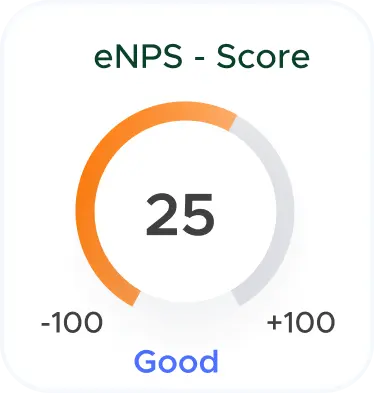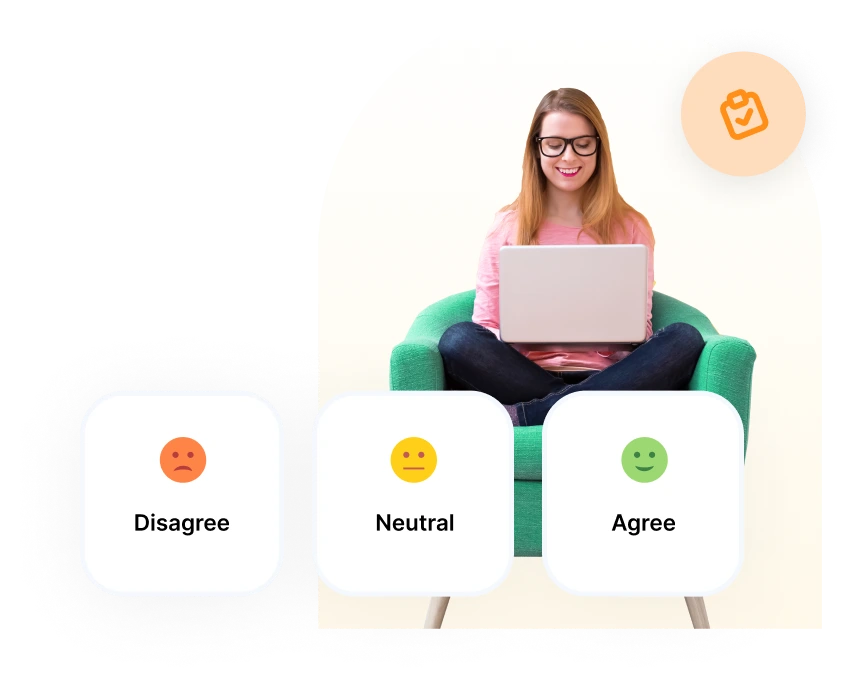✨ Verpassen Sie es nicht! Melden Sie sich für unser Webinar zum Thema Mitarbeiterzufriedenheit am 29. Februar an.🎖️
✨ Verpassen Sie es nicht! Melden Sie sich für unser Webinar zum Thema Mitarbeiterzufriedenheit am 29. Februar an.🎖️
Jetzt anmelden
Glossar der Begriffe des Personalmanagements und der Sozialleistungen für Arbeitnehmer
Employee referrals refer to the process of current employees recommending or referring potential candidates for job openings within their organization. This method leverages the personal and professional networks of existing employees to identify qualified individuals who may not be reached through traditional recruitment channels.
An employee referral is a recruitment method in which current employees of a company recommend or refer candidates for open positions within the organization. These candidates are typically individuals known personally or professionally by the referring employee.
Employee referrals typically involve the referring employee submitting the candidate's resume or application to the company's HR department or hiring manager, often accompanied by a recommendation or endorsement of the candidate's qualifications and fit for the position. Employee referrals are valued by companies for their ability to attract high-quality candidates who are more likely to succeed and integrate well into the company culture, leading to higher retention rates and overall workforce satisfaction.
Employee referral refers to the process of recommending or suggesting potential candidates for job openings within a company. It involves leveraging the network of existing employees to identify and attract qualified candidates.
An employee referral signifies a recommendation made by an existing employee of a company for a potential candidate to fill a vacant position within the organization. It reflects the confidence of the referring employee in the abilities and suitability of the candidate for the role.
Employee referral campaigns offer several advantages, including:
An employee referral program is a formalized system or initiative implemented by a company to encourage and facilitate employee referrals. It includes guidelines, incentives, and mechanisms for employees to recommend qualified candidates for job openings within the organization.
Yes, employee referrals are generally effective in sourcing and hiring qualified candidates. Studies have shown that referred candidates tend to have higher retention rates, perform better, and integrate more smoothly into the company culture compared to candidates hired through other means. Additionally, employee referrals often result in a faster and more cost-effective hiring process.
Employee referral can be considered better in many cases due to the numerous benefits it offers, such as access to a wider talent pool, higher-quality candidates, cost-effectiveness, and faster hiring. However, it's essential to complement employee referrals with other recruitment strategies to ensure diversity and inclusivity in the hiring process.
The three main types of referral are:
To ask for employee referrals effectively, a company can implement several strategies:

Es handelt sich um kurze Umfragen, die häufig verschickt werden können, um schnell zu erfahren, was Ihre Mitarbeiter über ein Thema denken. Die Umfrage umfasst weniger Fragen (nicht mehr als 10), um die Informationen schnell zu erhalten. Sie können in regelmäßigen Abständen durchgeführt werden (monatlich/wöchentlich/vierteljährlich).

Regelmäßige, einstündige Treffen für ein informelles Gespräch mit jedem Teammitglied sind eine hervorragende Möglichkeit, ein echtes Gefühl dafür zu bekommen, was mit ihnen passiert. Da es sich um ein sicheres und privates Gespräch handelt, können Sie so mehr Details über ein Problem erfahren.

Der eNPS (Employee Net Promoter Score) ist eine der einfachsten, aber effektivsten Methoden, um die Meinung Ihrer Mitarbeiter über Ihr Unternehmen zu ermitteln. Er enthält eine interessante Frage, die die Loyalität misst. Ein Beispiel für eNPS-Fragen sind: Wie wahrscheinlich ist es, dass Sie unser Unternehmen weiter empfehlen? Die Mitarbeiter beantworten die eNPS-Umfrage auf einer Skala von 1 bis 10, wobei 10 bedeutet, dass sie das Unternehmen mit hoher Wahrscheinlichkeit weiterempfehlen würden, und 1 bedeutet, dass sie es mit hoher Wahrscheinlichkeit nicht weiterempfehlen würden.

A referral person is an individual who provides recommendations or suggestions for other individuals, products, services, or opportunities. This can include employees referring candidates for job openings, customers referring new clients or customers to a business, or professionals recommending individuals for various purposes within their network. Referral persons play a crucial role in networking, recruitment, and business development efforts.